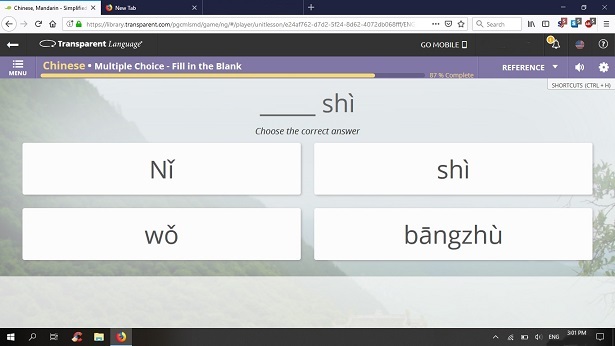Actually, language learning is not hard. When people say it is, they're almost talking about all the stuff that surrounds language learning, but not the process itself.
To master any language (even a first!) a learner needs to understand the material and then practice it. If a resource introduces something--a writing system, a verb conjugation, a grammar irregularity--without explaining it, many learners will give up in frustration: I don't get what's going on. Heaven help the learner if it introduces an element--spelling, conjugation, irregular verbs--incorrectly, because then they've absorbed something they don't even realise is a mistake and will have to spend time and effort and confusion to 1) realise it's wrong, and b) learn it again, correctly.
Which is why it's insane to me how shitty so many language-learning resources are--to say nothing of those created with self-study in mind. For instance, I dare anyone who's ever even briefly studied Chinese to tell me to tell me which of these four answers is correct.

I'm interested in seeing what people think, because program module uses spaced repetition, meaning it will keep lobbing the question at you until you give it the answer it likes.
これで以上です。
To master any language (even a first!) a learner needs to understand the material and then practice it. If a resource introduces something--a writing system, a verb conjugation, a grammar irregularity--without explaining it, many learners will give up in frustration: I don't get what's going on. Heaven help the learner if it introduces an element--spelling, conjugation, irregular verbs--incorrectly, because then they've absorbed something they don't even realise is a mistake and will have to spend time and effort and confusion to 1) realise it's wrong, and b) learn it again, correctly.
Which is why it's insane to me how shitty so many language-learning resources are--to say nothing of those created with self-study in mind. For instance, I dare anyone who's ever even briefly studied Chinese to tell me to tell me which of these four answers is correct.

I'm interested in seeing what people think, because program module uses spaced repetition, meaning it will keep lobbing the question at you until you give it the answer it likes.
これで以上です。
Tags:
From:
Well ...
Learning languages is much easier for some people than others, because 1) everyone is good at different things and 2) most people's language window closes as they get older. Mine hasn't; that's not normal for humans.
Also, the modes matter. Some people learn really well from explanations, others only by osmosis. I can do both, but in a class I really want access to sophisticated linguistics that nobody could ever keep up with, and for osmosis I want as much exposure as possible. That's if I'm actively trying to learn. But I don't have to. Words just stick to me, I'm linguistic SillyPutty.
I have to try very hard, sometimes, to remind myself that for some people numbers are that easy, and words are as hard as numbers are for me.
From:
Re: Well ...
Motivation is equally or even more important than aptitude. I'm also good at math but prefer conjugating verbs over solving differential equations, so that's where I direct my time and energy when left to my own devices. And I'll choose doing both over any number of other skills--baking, photography, playing poker, or any number of other tasks that also require attention, effort, and practice to get good at.
I think the closing language window is also highly dependent on factors aside from aptitude:
- Native language learning largely progresses hand-in-hand with mental development. At four, I wasn't frustrated by an inability to discuss the hero's journey as portrayed in MCU films. As an adult language learner, I am.
- Adults are generally far more self-conscious about making and having their linguistic mistakes corrected (an effect that's often amplified if there's a status mismatch between the adult learner and the adult correcting them).
- The incentive are different. For many adults, second language-learning occurs in an academic setting whose very structures--testing and evaluation--are at cross purposes to the experimentation and errors required to master a language.
More basically, the definition of "fluent" is situational. Few people would have said I couldn't "speak" my native language at five, even though I was incapable of writing a short story, reading a newspaper, understanding a sixth grade science lecture, or giving a keynote address--all things it took years of schooling to master. Yet adult language learners' fluency is evaluated on their command of the second language in comparison to their age, not how long they've been learning the language in question.
TL;DR - the factors that make adult language acquisition hard are separate from the basic mechanics of learning it.